93 - Spitting Distance
Thursday, February 27, 2014
Tough decisions on Sunday. So many options, so few hours in the day! Finally the choice was made. Despite getting home from the opening night of Málaga’s Carnaval in the wee small hours, I decided I didn’t want to miss the mountain walk, so dragged myself grumbling from my cosy bed to pull on walking boots and make a sandwich for our morning break.
 Carnaval, still underway, is great. A city enjoying itself. Mad outfits, an appreciative audience, and thousands of people just wandering the streets, listening to the well-rehearsed groups of singers and their satirical songs. Oh and maybe the odd beer and tapas somewhere along the way. Saturday night, the launch had started late of course, and I got home at 2am. Not at all late by Spanish standards, but I’m still in training this early in the year and can’t manage the really late nights until summer comes and the nights are for doorstep-chatting on rickety chairs. Carnaval, still underway, is great. A city enjoying itself. Mad outfits, an appreciative audience, and thousands of people just wandering the streets, listening to the well-rehearsed groups of singers and their satirical songs. Oh and maybe the odd beer and tapas somewhere along the way. Saturday night, the launch had started late of course, and I got home at 2am. Not at all late by Spanish standards, but I’m still in training this early in the year and can’t manage the really late nights until summer comes and the nights are for doorstep-chatting on rickety chairs.
I love it that Málaga is so close, just a spit away. Half an hour from my door to where I leave the car and walk a couple of moments to the centre. It was part of the attraction, part of why I chose Colmenar, though back then (it feels longer than the 19 months that it is) I didn’t realise how much Málaga would come to mean to me. The balance is perfect – the city is close enough to visit 3 or 4 times a week, to enjoy the galleries, the shops, the bars, the port, the beaches, and all that any great city has to offer. Yet at the same time, my heart lifts as I turn off the autovía and head over the rolling hills of the Axarquía to my pueblo.
Also within spitting distance are endless opportunities for hill-walking. Our group goes out only every three weeks for a long walk, so despite the late night at Carnaval I didn’t want to skip the ramble. A cream cheese and chorizo sandwich was shoved into the backpack along with some water, and I headed up to Púlgarin, above Periana, where the walk began. We parked by an ancient olive tree – purported to be 2,000 years old. Amazing to think that the Romans made oil from that same tree. A steep climb at the start wore out a couple of the group who elected to await our return on a convenient rock overlooking the lake and the distant sea. The rest of us strode on and were rewarded with sun on our faces, and a sandwich break under the dappled shade of some vines outside a semi-deserted cortijo.
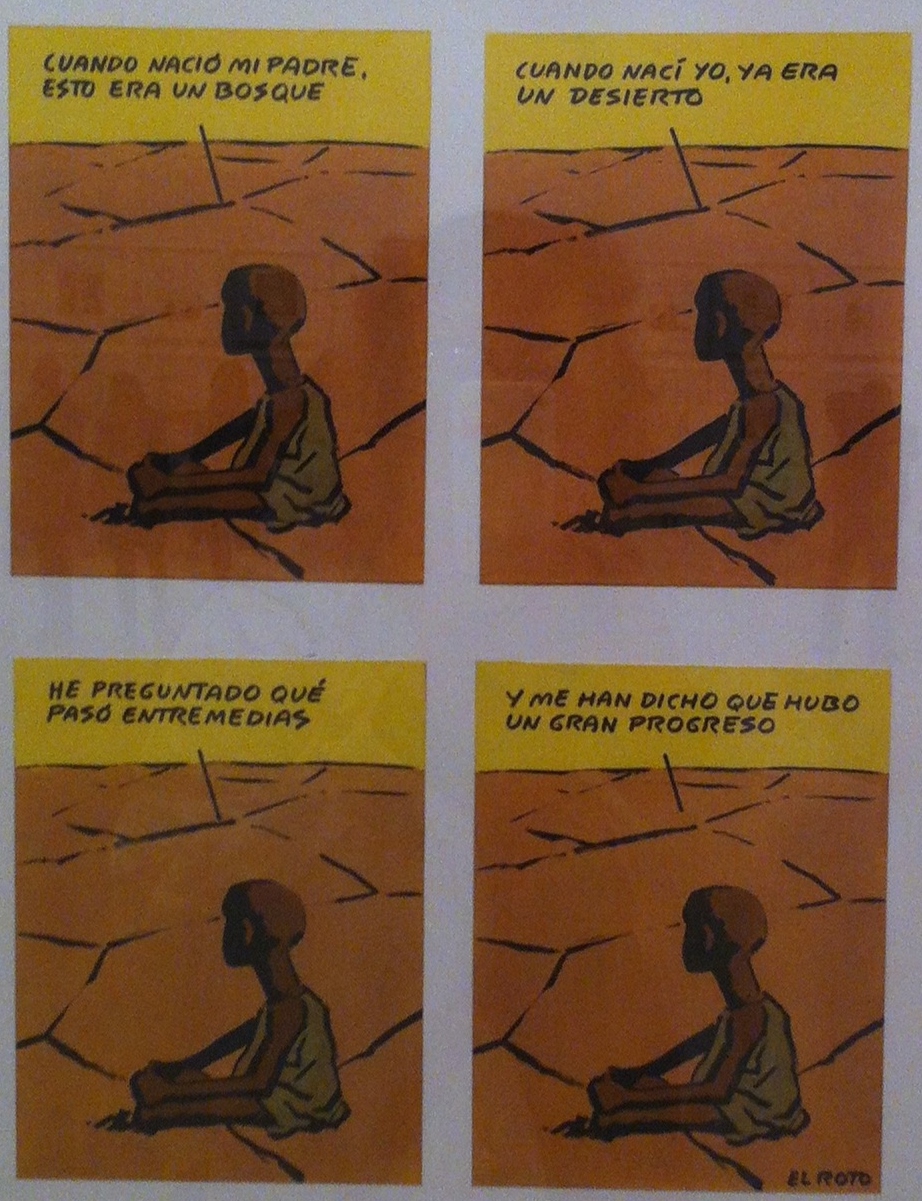 As always, a beer or a coffee at the bar nearest to the cars, then I headed home to shower, change, and drive back into Málaga. I needed a second visit to a controversial exhibition at CAC (el Centro de Arte Contemporaneo), which had left me with mixed feelings the day before. Some brilliant, hard-hitting cartoons with satirical commentary had captivated me, but having to translate each one had been exhausting, and a return visit was necessary to view the rest. In the back room, disturbing images of nude women in shockingly discomfiting situations (the exhibition was entitled Mujeres y Paredes, or “Women and Walls”), merited a second look to see if more sense could be made of them. As always, a beer or a coffee at the bar nearest to the cars, then I headed home to shower, change, and drive back into Málaga. I needed a second visit to a controversial exhibition at CAC (el Centro de Arte Contemporaneo), which had left me with mixed feelings the day before. Some brilliant, hard-hitting cartoons with satirical commentary had captivated me, but having to translate each one had been exhausting, and a return visit was necessary to view the rest. In the back room, disturbing images of nude women in shockingly discomfiting situations (the exhibition was entitled Mujeres y Paredes, or “Women and Walls”), merited a second look to see if more sense could be made of them.
Again, so close, these marvellous opportunities to enjoy beautiful art, and be challenged by uncomfortable art. Free, and all just a spit away.
Coffee and cake at a favourite café, then we joined the throngs awaiting the main Carnaval procession. Families, youngsters, everyone lined the sunny streets to admire the costumes and the singing. We bumped into friends, kissed and moved on. Then into the back-streets for some fishy tapas. All in spitting distance.
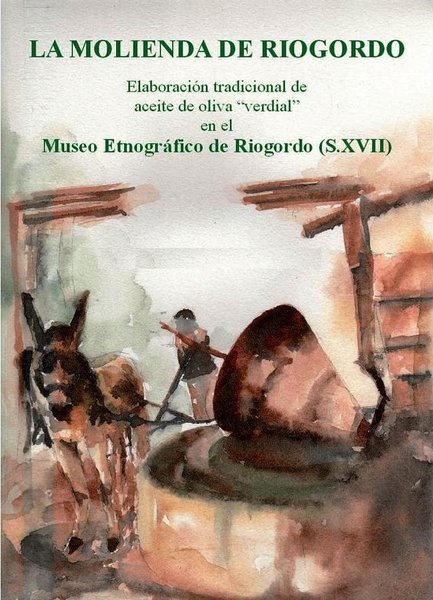 But there are not enough hours, even with an early start and a late finish. The one excitement that I could not fit in on Sunday was to pop over to the neighbouring village, Riogordo, where their Olive Festival included an olive-stone spitting contest. I was disappointed to miss it – it was only a spit away. But there are not enough hours, even with an early start and a late finish. The one excitement that I could not fit in on Sunday was to pop over to the neighbouring village, Riogordo, where their Olive Festival included an olive-stone spitting contest. I was disappointed to miss it – it was only a spit away.
© Tamara Essex 2014
THIS WEEK'S LANGUAGE POINT:
Last month I mentioned a friend who had accidentally ordered a large joint of marijuana in a tapas bar by asking for “porro” instead of “porra” ("A Morsel of Bacon"). And many a woman has been embarrassed in the butcher’s by asking for “polla” instead of “pollo” when she honestly did just want chicken (one local woman who thought she had asked the butcher if he had a really BIG chicken for six people to eat hasn’t been back into that shop since …).
Wrongly imagining myself above such silly errors I reduced the painter and his son to giggles last week. I had been away overnight when they had finished painting my doors and windows and putting up new mosquito screens upstairs and downstairs, so they returned the following week to be paid and to check everything was satisfactory. “Si, ésta bien. Solo faltan los tres mosqueteros.” Pepe’s son dropped a biro and hid his giggles as he pretended to search for it. Pepe smothered his grin and looked quizzically at me. I had just said “Yes it’s all fine, we’re just missing the Three Musketeers!”
Pah. Mosqueteros / Mosquiteras. Near enough, you’d think! Sigh. These wretched noun endings! Anyway, I clarified that I did not expect Athos, Porthos and Aramis to jump through the open windows, but that I would like the three downstairs mosquito screens replaced to prevent ingress by musketeers AND mosquitos! Las tres mosquiteras. So Pepe will pop back next week with those. I wonder if he’ll come dressed as D’Artagnan?
 2
Like
Published at 9:43 AM Comments (2)
2
Like
Published at 9:43 AM Comments (2)
92 - Deciphering Fay-Bu
Thursday, February 20, 2014
Anyone with a teenager, or with teenage friends, or simply with friends a generation (or two!) younger than themselves, will be familiar with that furrowed brow you gain when trying to decipher a text message or a Facebook status that really seems to be written in another language.
For example us oldies have mostly worked out that “C u l8r” means “see you later”. A text or Facebook conversation can apparently read: - RU cmin out 2nite? -Yeah luv 2 m8, wot time? - bout 8ish. mt u in twn - gr8. cu then
So how much MORE difficult does it become, then, when the text-speak, or Facebook-speak, really IS in another language? Españ-FayBu-text-speak.
Having been attempting to get to grips with how my younger Spanish friends write, I’m slowly learning to decipher the code.
Tb = también = also
K = que = that
K kieres = que quieres = what do you want
Stoi = estoy = I am
Xk = por que / porqué = why / because
X is also used to replace CH as in xicas = chicas = girls or young women
@ is sometimes used to make plurals gender-neutral eg chic@s
Keda = queda = stay
Wapa = guapa = pretty, but just used as a greeting mostly
Wenas = Buenas = good, or well, or hello (short for buenas tardes)
 I’m in a Facebook group of Spanish people living and working in London. I realise that I am neither Spanish, nor in London, but at times I can help guide them through the bureaucratic nightmare of trying to sort paperwork in a language that is not your own. For example, a week or so ago, a young man was trying to register a second-hand car he had bought. So he popped along to the Town Hall, who told him “Oh no, you don’t do that here, you have to go to Swansea.” Bemused, he went back to his shared flat and looked up Swansea on the internet. Even more bemused, he came onto the Facebook group and asked his countryfolk “Aaaargh! They tell me I must go to another country just to sort my car!?!?!?!?!” Poor guy. It must have seemed even worse than it does for a British person in Spain queuing at the police station for a green residency card. I’m in a Facebook group of Spanish people living and working in London. I realise that I am neither Spanish, nor in London, but at times I can help guide them through the bureaucratic nightmare of trying to sort paperwork in a language that is not your own. For example, a week or so ago, a young man was trying to register a second-hand car he had bought. So he popped along to the Town Hall, who told him “Oh no, you don’t do that here, you have to go to Swansea.” Bemused, he went back to his shared flat and looked up Swansea on the internet. Even more bemused, he came onto the Facebook group and asked his countryfolk “Aaaargh! They tell me I must go to another country just to sort my car!?!?!?!?!” Poor guy. It must have seemed even worse than it does for a British person in Spain queuing at the police station for a green residency card.
So sometimes I’m able to help, and it’s good for my reading and writing of Spanish, as of course they all write in Spanish …. of a sort.
This next sample was from a young woman who once again needed models for free haircuts ….. “Wenas!!! Vuelvo a necesitar xicas ke se kieran cortar el pelo gratis! Pero esta vez solo chicas k kieran melenitas cortas o bob todos los martes. Tb colores y mechas por 10£ entre semana n la pelukeria kell scoot n notting hill si alguna esta interesada ke me agrege y ablamos!! Gracias!!” Clear?
One day I’d asked a Spanish friend via Facebook whether she was going to the fiesta that evening, and her reply came back “No, xk m keda cerca d casa tb.” After a long hard stare I worked out that she wasn’t going out (though to be honest, without the “no” at the start, I’d have struggled!).
So I’m now having to learn FOUR Spanish languages – Castilian (as spoken in Madrid and at my language school), Andaloo (as spoken in the rural south), cateto (as spoken in the villages, though this is a derogatory term implying they are uncultured) and what I can only call Españ-FayBu-text-speak. Oh and I have to remember which one to produce, at the right time in the right setting. Sigh. M keda cansao.

© Tamara Essex 2014
 3
Like
Published at 9:48 AM Comments (1)
3
Like
Published at 9:48 AM Comments (1)
91 - A Morsel of Bacon
Friday, February 7, 2014
Unusually, I have written very little about food in this blog. Strange, because it plays an enormous part in my life. And it's different here in Spain. Not just the food, but the rituals around it, and the general approach to food.
There's a respect for the produce that I think we have entirely abandoned in the UK. We have lost almost the last vestige of connection with where food comes from. Children, asked where a carrot comes from, look blank. Asked where cheese comes from, they answer Tesco. You can laugh at this, but really we should be crying. And fixing it. Look into the average trolley in a supermarket and you can be pretty sure that a lot of parents aren't going to be the ones teaching their children about produce, quality, and the politics of localism.
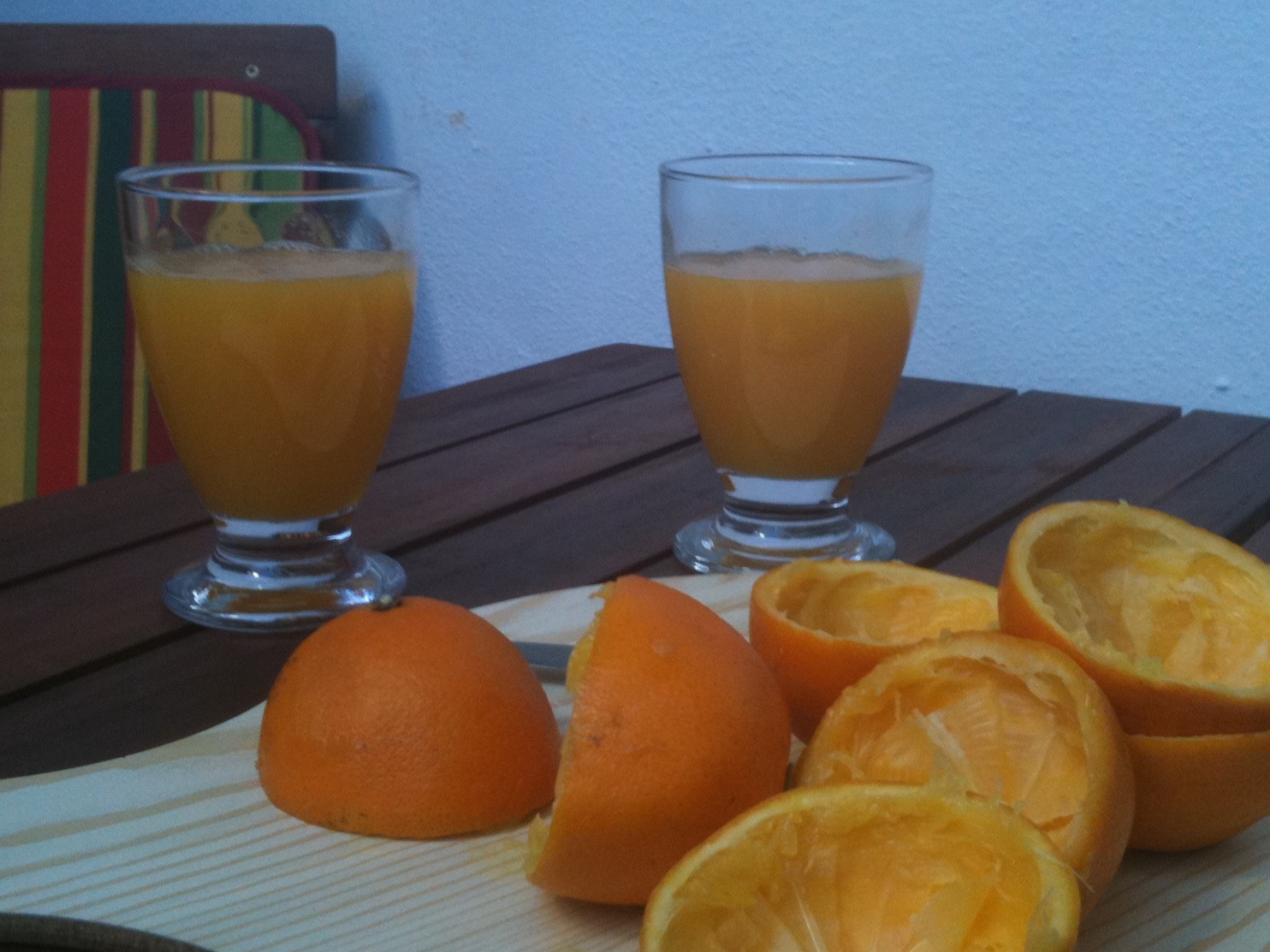 I'm not a total purist. I sneak the odd prepared meal into my shopping, even here in Spain. But much less than I used to. Of course it helps that my neighbours occasionally deliver a delicious bag of fresh vegetables or eggs, an enormous jar of honey direct from their bees, freshly-picked oranges when I had a cold, a home-made tub of dulce de membrillo, or 5 litres of Rafael’s own olive oil. Yet even without that, I recognise that my eating habits have changed dramatically. I'm not a total purist. I sneak the odd prepared meal into my shopping, even here in Spain. But much less than I used to. Of course it helps that my neighbours occasionally deliver a delicious bag of fresh vegetables or eggs, an enormous jar of honey direct from their bees, freshly-picked oranges when I had a cold, a home-made tub of dulce de membrillo, or 5 litres of Rafael’s own olive oil. Yet even without that, I recognise that my eating habits have changed dramatically.
.JPG) It starts, of course, with the shopping. The weekly market is wonderful for fruit and veg, and in between Supermercado Richard has a great selection. The other shoppers demand only the best produce, loudly and scornfully rejecting anything less. But "the best" does not mean uniform, perfectly-shaped fruit. It means highly-flavoured, recently and locally-harvested, often mis-shaped, and ready to eat. It starts, of course, with the shopping. The weekly market is wonderful for fruit and veg, and in between Supermercado Richard has a great selection. The other shoppers demand only the best produce, loudly and scornfully rejecting anything less. But "the best" does not mean uniform, perfectly-shaped fruit. It means highly-flavoured, recently and locally-harvested, often mis-shaped, and ready to eat.
You quickly come to learn which panadería you like best for crusty morning rolls, and which for cakes. Which carnicería is best for pork, which for chorizo, and which for prime beef fillet.
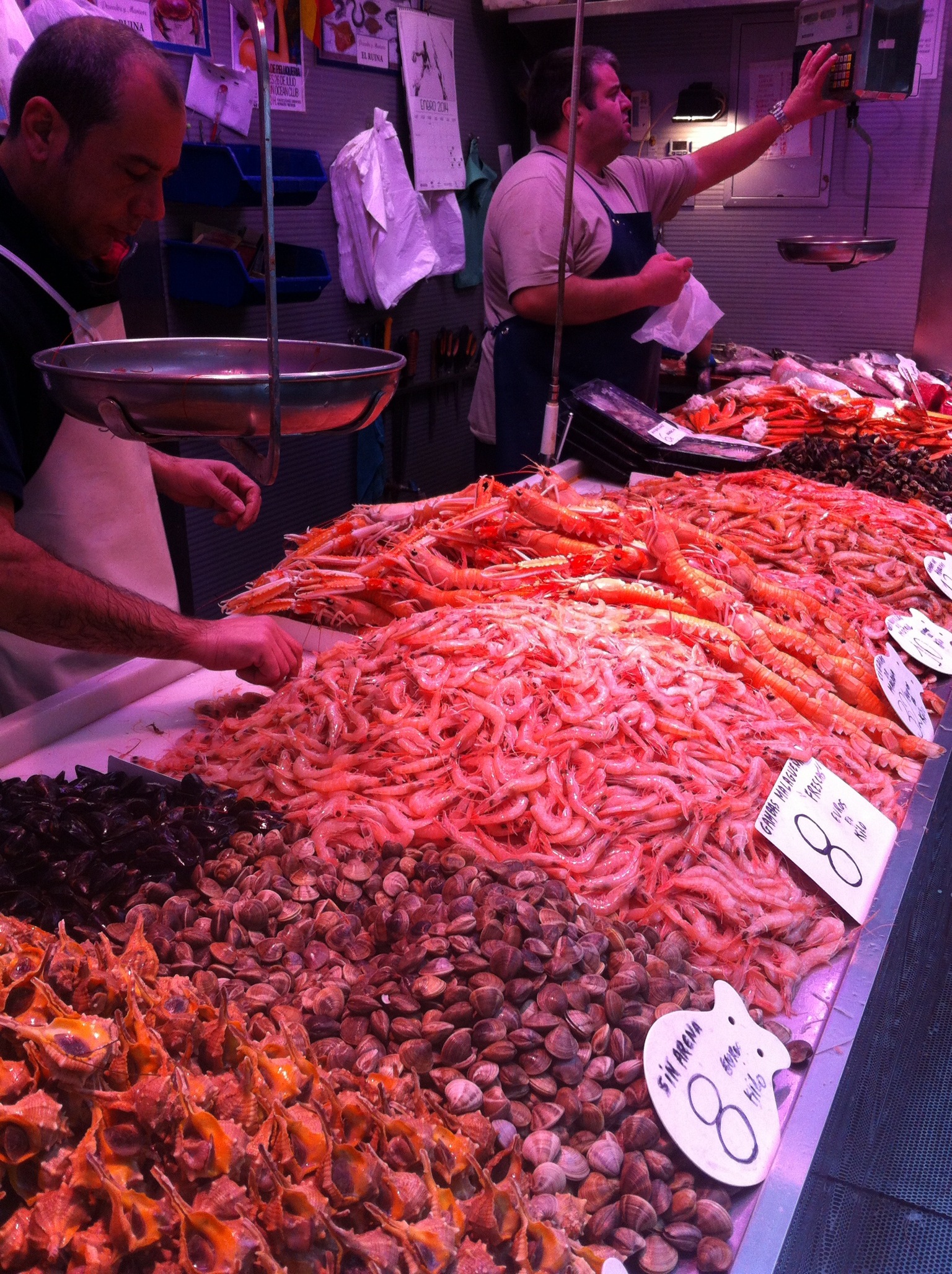 And I am finally learning to enjoy cooking. Though even better is watching other people cook. Juan came and cooked a massive paella in my house last month when I had a cold, even making the caldo (stock) from scratch. It was superb. And I have four more portions of it in my freezer, despite giving him back a big tubful to take home for the next day. From Roberto I have picked up some Cuban cookery - few ingredients, but beautifully flavoured and cooked, like orange chicken on black beans and rice. And I am finally learning to enjoy cooking. Though even better is watching other people cook. Juan came and cooked a massive paella in my house last month when I had a cold, even making the caldo (stock) from scratch. It was superb. And I have four more portions of it in my freezer, despite giving him back a big tubful to take home for the next day. From Roberto I have picked up some Cuban cookery - few ingredients, but beautifully flavoured and cooked, like orange chicken on black beans and rice.
One of the biggest differences isn't so much the food itself, as the style of eating. Here in restaurants in Spain I have often seen huge groups of extended families ordering mountainous plates of food, yet when it comes it sits there in the centre (it's always for sharing, never a dish per person), and the conversations continue. Many times I have felt frustrated and wanted to shout "Eat, eat, before it gets cold!", completely failing to "get" that the gathering of the clan is by far the most important thing that's going on around the table. Not that the food doesn't matter. Eventually one old boy extends a fork, spikes a piece of meat, cuts it on his own tiny plate, takes a mouthful and savours it, pointing and encouraging others to share the flavour and succulence. A couple of gambas (prawns), a slice of garlicky 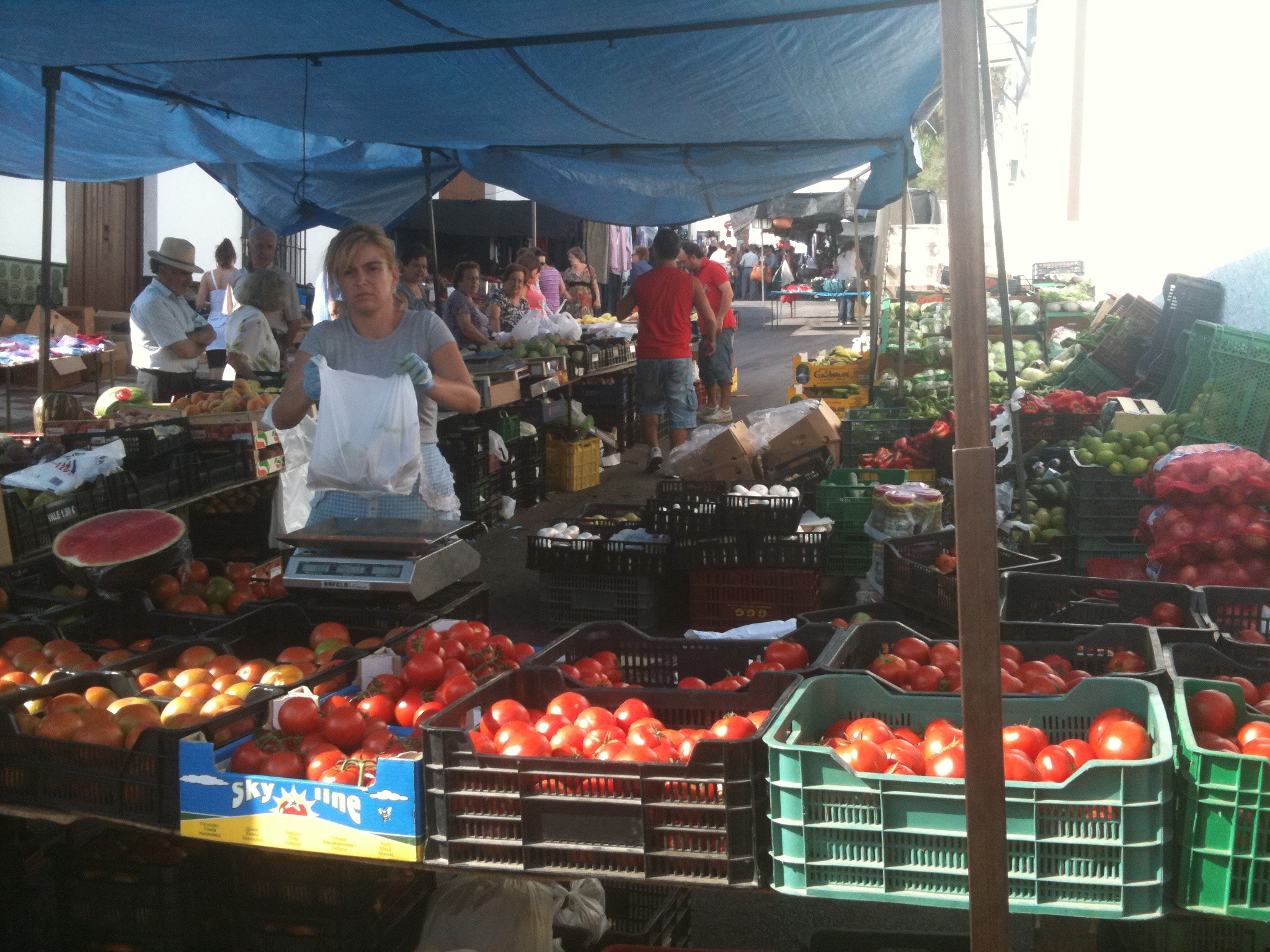 tomato, a spoonful of porra. Each flavour is exclaimed over, focussed on, and shared. These folks recognise good food, alright. And that extra value that appears to be put on it, maybe comes from the increased awareness that Alfredo in the bar makes the best porra in the province, from his grandmother's recipe, from the tomatoes and peppers he has grown, flavoured with just a splash of his mother's secret ingredient. That the jamón was collected from his cousin in the Alpujarras, who raises the valuable Iberico pigs and whose black-label hams win prizes every year and are much sought-after. People know that stuff about the bars they eat at, and it matters. Simple food, with a cracking good flavour, and all traceable. Food to be lingered over, savoured, respected. Memorable food - not least because of the people who produced it and the people who prepared it with real care. tomato, a spoonful of porra. Each flavour is exclaimed over, focussed on, and shared. These folks recognise good food, alright. And that extra value that appears to be put on it, maybe comes from the increased awareness that Alfredo in the bar makes the best porra in the province, from his grandmother's recipe, from the tomatoes and peppers he has grown, flavoured with just a splash of his mother's secret ingredient. That the jamón was collected from his cousin in the Alpujarras, who raises the valuable Iberico pigs and whose black-label hams win prizes every year and are much sought-after. People know that stuff about the bars they eat at, and it matters. Simple food, with a cracking good flavour, and all traceable. Food to be lingered over, savoured, respected. Memorable food - not least because of the people who produced it and the people who prepared it with real care.
My strongest memory of how food is valued and respected for the work that has gone into bringing it to the table, came last year when our little callejon had a fiesta, a street party to celebrate our third place in the village's Corpus Christi altar competition. Rafael had a little barbecue grill going in his garage, despite the tables groaning with food between his house and mine. The men were in there, sharing some beers and putting the world to rights, while we women were out in the street, making sure the children and the older women had food before helping ourselves, and congratulating each other on our offerings. Rafael beckoned me into the inner sanctum of his garage, stuck a toothpick into a small square of bacon on his grill, and offered it to me as though it was a 100-carat diamond. And, do you know? - it was better than that. The bacon tasted more bacony, the fat was crispy and the charring just right. It tasted a million dollars. Partly because it was, in fact, the tastiest morsel of bacon that had ever existed, and partly because it stood for so much more. My acceptance in the street. The friendship of my neighbours. The ritual of the sharing of food and all that is implied within that. But even leaving all that aside, honestly, never was there bacon so bacony. Because Rafael had bought that young pig with money hard-earned on his land. He'd fed that pig with food he had grown and acorns he had harvested from his trees. He'd brought that pig to his family, to feed them through the year. He knew the value of that morsel of bacon. And, through him, so did I.
© Tamara Essex 2014
THIS WEEK'S LANGUAGE POINT:
A food-related reminder of the importance of ending words with the right O or A. Along with eight friends over from Cumbria I went on a Ruta de Tapas with www.tapasinmalaga.com (a fabulous evening). The first bar on the tour served the most delicious garlic potatoes, squid, and their own recipe for porra, which is a tomato-based garlicky dip with breadcrumbs, red pepper and olive oil, served cold. Similar to salmorejo which is more common in la Provincia de Córdoba and doesn't have the peppers (folks will argue about those definitions but that's what several chef friends told me, anyway!). Anyway, one of the women absolutely loved it, and when the waiter came round to see if everything was alright she loudly asked for another large portion of porro. The waiter's face was a picture, as that small matter of an o at the end instead of an a meant that she had asked for a large marijuana joint!
 1
Like
Published at 9:51 AM Comments (1)
1
Like
Published at 9:51 AM Comments (1)
Spam post or Abuse? Please let us know
|
|